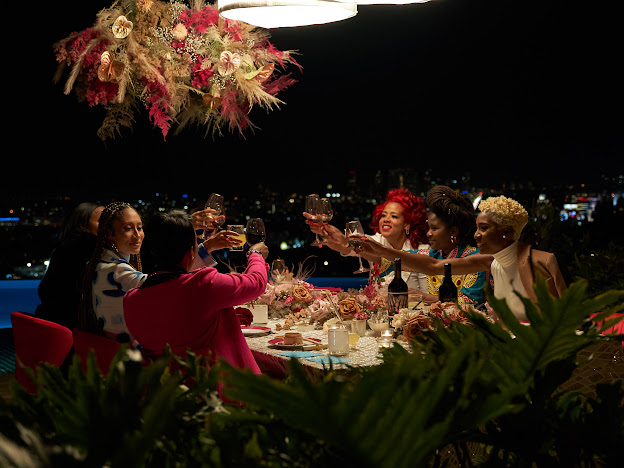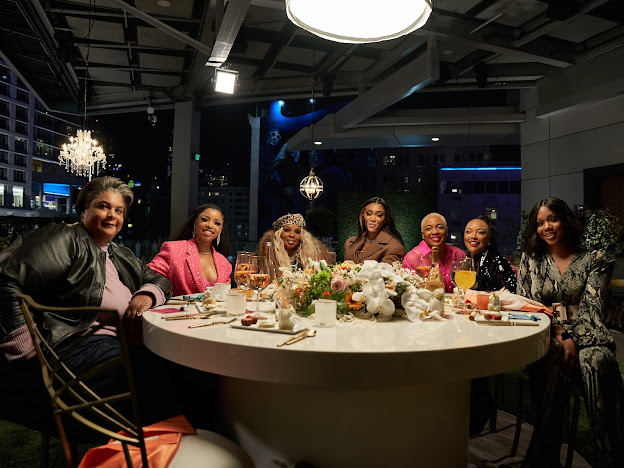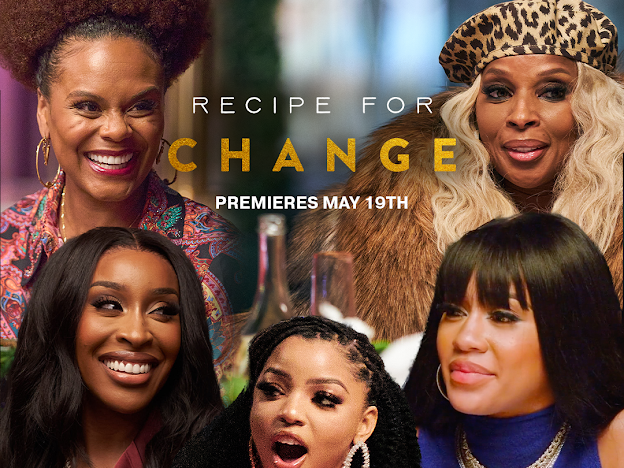
Courtesy of YouTube Originals
Black women have often been characterized as strong, confident, and stoic, but are those archetypes doing more harm than good? Some of America’s most powerful women of color are sitting down to discuss the topic for a forthcoming YouTube Original special called Recipe for Change: Amplifying Black Women that will air in full on May 19.
A brief teaser from the series, captures Atlanta Mayor Keisha Lance Bottoms addressing the “strong Black woman” trope during a roundtable discussion with notable figures across pop culture, media, and entertainment, including Saweetie, Elaine Welteroth and Kelly Rowland.
“What is your first reaction when you hear the phrase, strong Black woman?” she asks the talented group before answering:
“My first reaction is pressure. There is such an enormous amount of pressure for us to be strong that we don’t get the luxury of being weak, of being fragile, or being vulnerable.”
A second clip shows Mary J. Blige and The Real’s Loni Love sharing their thoughts about the controversial phrase.
“You know the word strong. What does that mean?” asks the R&B hitmaker, before the scene cuts to Love:
“We are just like every other woman, but when you use that term, strong black woman, every black woman they see ‘you know, you strong and you can solve all the problems’…Stop it! Treat us all as individuals. That’s what we’re trying to fight for.”
The original series will feature a slew of celebrities, activists, and creators as they come together for a chef-prepared meal to share their lived experiences and discuss important topics like code-switching, colorism, and mental health. Renee Montgomery, Danielle Young, Angelica Ross, and Chloe Bailey are also among the list of powerful female stars who will appear during the special.
Some of the ladies in the video have experienced firsthand how the strong black woman stereotype can have a negative impact. In 2021, Bottoms announced that she wouldn’t be running for re-election after she was slammed with an onslaught of criticism for how she handled the heated protests that sparked in Atlanta following the death of George Floyd. Bottoms worked closely with activists in the community to help fight back against issues of systemic racism in the city, but many critics challenged the Democrats despite her hard work to improve public safety and police reform.

Source: Courtesy of YouTube Originals / YouTube Originals
Karen Weaver, former mayor of Flint, Mich spoke to Politico about how she believed Bottoms was criticized more than most mayors throughout her tenure.
“You’re always trying to establish trust. And when trust has been broken, at so many levels of government, it’s a difficult thing to do. As a Black person, and let me just add as a female, you’re always having to prove yourself a little bit harder, a little bit stronger,” Weaver added.
Mary J. Blige has often written and performed about her struggles as a Black woman over the years. Blige has spoken candidly about the emotional trauma and wounds she’s sustained from her difficult childhood, depression, and drug abuse.
The R&B legend, who just won the Icon Award at the Billboard Music Awards earlier this week, talked about the dangers of holding on to too much emotional baggage as a Black woman during an interview with Taraji P. Henson. The star said she constantly leans on her music to help her process her negative thoughts.
“The negative thought life creates a bad day because if you don’t get a hold to what you thinkin’, everything you do is gonna be what you’re thinking’,” she told Henson during the interview, Yahoo News noted. “So, every single day, every second of the day, we are fighting our thought…When we lie to ourselves that’s a form of insanity. You just can’t do it … you’ve gotta teach that other side that you can’t win.”

Source: Courtesy of YouTube Originals / YouTube Originals
Studies have shown that the strong Black woman trope can lead to depression in women of color. In 2019, Yale Professor, Jasmine Abrams, discovered the unfortunate reality after conducting a survey centered on the connection between the mindset and the ideology that self-silencing and self-sacrifice were characteristics of strength.
“Being a ‘Strong Black Woman’ has many benefits — but these benefits can, at times, come at an expense. The benefits are that the cultural ideal helps women to cope with challenging circumstances, helps ensure the survival of families/communities, and makes women feel connected to their culture,” Abrams said of her findings.
“On the other hand, being a ‘Strong Black Woman’ can be related to increased stress and maladaptive coping that can result in depression symptoms. Specifically, the ‘self-silencing’ aspect (e.g., holding in negative emotions, pretending to be happy or okay when you are really not) is a pathway from strength to depression.”
Will you be watching Recipe For Change?
RELATED CONTENT: Listen To Black Women: Tackles Red Flags Around Emotionally Unintelligent Men









